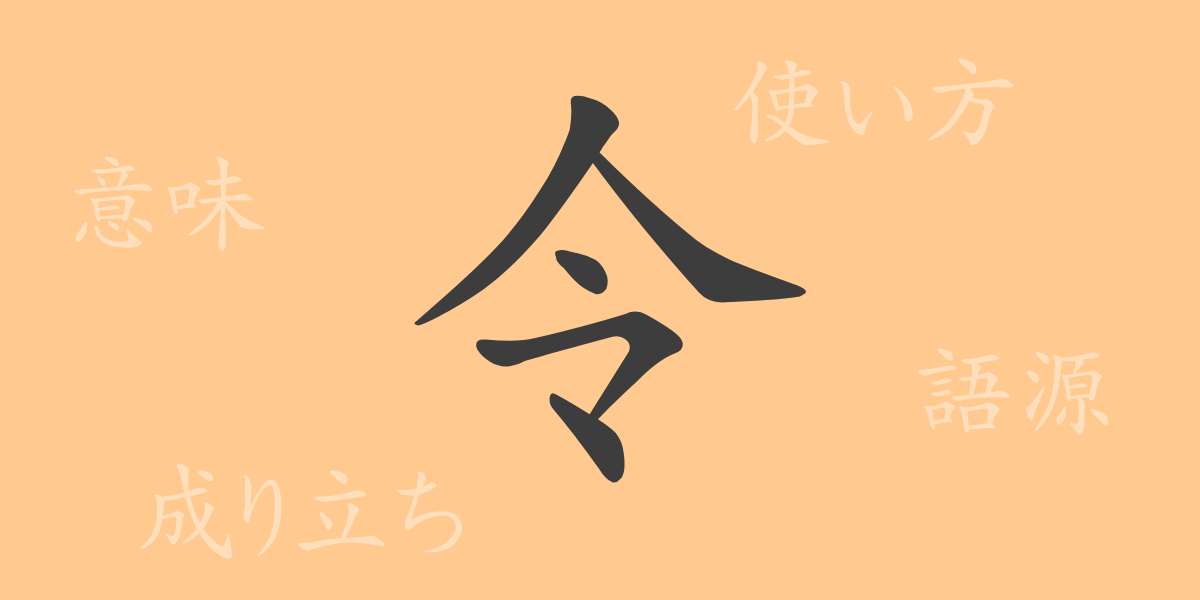In written Japanese, kanji (Chinese characters) are indispensable. Among them, the character “令” (rei) is frequently seen in daily life, yet its background and details are surprisingly not widely known. This article delves into the origins, meanings, uses, and idiomatic expressions rooted in Japanese life that involve the character “令” (rei). By reading this, you will discover the rich expressiveness and charm that the character “令” (rei) holds.
The Origin of 令 (rei)
The kanji “令” (rei) can trace its origins back to ancient Chinese oracle bone script. Originally, it was shaped like an axe and used as a symbol for commands and laws. Over time, it evolved to represent more abstract concepts like “to command” and “law.” In Japan, it is also one of the significant kanji, as seen in the era name Reiwa (令和, reiwa).
Meanings and Uses of 令 (rei)
The kanji “令” (rei) has multiple meanings, including “to command,” “law,” and “good.” It is often used to indicate authoritative decisions such as commands or laws, and to regulate something. Additionally, “令” (rei) is used to commend people or things as beautiful and respectable.
Readings, Stroke Count, and Radical of 令 (rei)
The kanji “令” (rei) has various readings in Japanese.
- Readings: In on’yomi (音読み, onyomi), it is read as “rei,” and in kun’yomi (訓読み, kunyomi), it can be read as “nori” or “shirushi.”
- Stroke Count: “令” (rei) is a 5-stroke kanji.
- Radical: The radical of this kanji is “亻” (ninben, hitoe), which represents a person.
Idioms, Proverbs, and Expressions Using 令 (rei)
There are numerous idioms, proverbs, and expressions that include the character “令” (rei), showcasing the richness of Japanese language expressions. Here are some examples:
- 令嬢 (れいじょう, reijou): A term referring to a young lady, particularly from an upper-class family.
- 令息 (れいそく, reisoku): A respectful term used to refer to someone else’s son.
- 令名 (れいめい, reimei): A distinguished name or reputation.
- 令状 (れいじょう, reijou): A warrant issued by a court.
- 令色 (れいしょく, reishoku): Beautiful color or a beautiful appearance.
These idioms and expressions are widely used among Japanese people, and the inclusion of “令” (rei) adds depth and formality to each term’s meaning.
Conclusion on 令 (rei)
The kanji “令” (rei) possesses a diversity of meanings and uses that are far beyond what its simple form might suggest. From the authoritative nuances of commands and laws to the commendatory sense of beauty and respect, this character is an essential element in the Japanese language. Understanding kanji like “令” (rei) is highly valuable for appreciating the depth of Japanese culture and language.

























